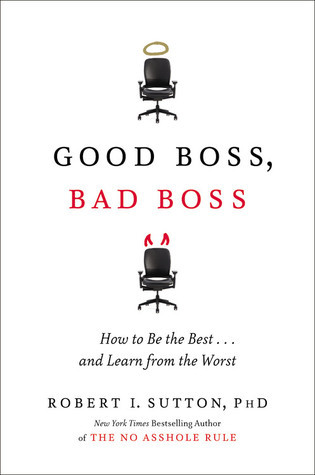
LEARN A LITTLE:
There Is No Such Thing as All of a Sudden
I was talking with a neighbor recently, who was, according to him, mowing the grass for the last time this year. “All of a sudden,” his mower quit, and the engine just died. No matter how many times he pulled the starter cord, the engine wouldn’t turn over.
I asked him how much two-cycle oil he had added to the gasoline. I was wanting to hear something like “50 to 1,” but instead I heard, “I didn’t think you had to add oil every time you filled the tank.”
“Did you hear any grinding or other strange noises, notice a drop in performance, a burning oil smell, or stalling?” I asked.
“No,” he said. “It just all of a sudden stopped running.” Of course, after spending a lot of money on an engine repair bill, he now knows he should put oil in the tank every time he adds gasoline.
That conversation triggered my recollection of many other instances in which people I have worked with reported that something or someone malfunctioned with no prior warning. In the world of equipment, the “all of a sudden” incidents can often be traced back to a lack of maintenance, such as failing to grease a machine part, not checking the water level in the radiator, not sharpening a blade, and even more generally, just not doing preventative maintenance. The same thing could be said of mechanical systems, such as heating and air conditioning systems as well as electrical ones.
It has been my experience that in the world of people, most “all of a sudden” behavior—outbursts of anger, tears, door slamming, job abandonment, acts of rudeness, etc.—do have a traceable genesis. We may just not have noticed or witnessed it. Sometimes, in fact, the cause may have simply been a phone call.
What people also experience is a person who seemingly explodes for no apparent reason. The fact is that there are quite a few individuals, who go underground in their bodies with their negative emotions, and keep them in check for an extended period of time. Then they seem to explode with no obvious trigger.
On certain occasions, organizations will also report the occurrence of “all of a sudden” experiences, such as the unexplained loss of previously regular customers. It might also be individual donors or families, who suddenly quit donating without explanation after having given faithfully to a nonprofit organizations for years.
In most of the instances shared above, the people closest to the situation report no indication that something bad might happen or could happen. Often, it’s because they lack the experience or knowledge of warning signs.
It is recommended that an organizational leader discuss the downsides and danger of not recognizing “all of a sudden behavior” as part of their in-service training curriculums. These training and dialogue sessions should include storytelling, and ways to develop personal, team and system awareness, including the use of “Leemur logs”. My notion is that while I don’t mind surprises on my birthday, they are primarily events that I could do without. Most of the “all of a sudden” experiences that I have encountered involved disappointment or bad news. I guess I just don’t enjoy the unexpected.
LAUGH A LITTLE:


REFLECT A LITTLE:

Proverbs 24:27 (NIV)
“Put your outdoor work in order and get your fields ready; after that, build your house.”
READ A LITTLE

Good Boss, Bad Boss
Robert Sutton
(Business Plus, 2010)

I was introduced to Good Boss, Bad Boss by a colleague of mine, who had read last month’s blog, “How’s Your Job Going?” and thought I would enjoy it. He was right, so I decided that I would introduce it to you as a follow-up on Part II of that blog.
While Robert Sutton wrote the book 15 years ago, most of his insights still ring true today. You may recognize Sutton as Jeffrey Pfeffer’s coauthor in The Knowing-Doing Gap and also author of the best-seller, The No Asshole Rule: Building a Civilized Workplace and Surviving One That Isn’t.
The book consists of three sections:
1. Setting the Stage
2. What the Best Bosses Do
3. The Upshot
It is full of humor, keen insights and sage advice. My suggestion is to read this book with one primary thought in mind—and is captured in the last sentence of the book which is posed as a question, “Are you in tune with what it feels like to work for you?”

Section I: Setting the Stage
• “In an early 2007 national study of 8,000 American adult employees who experienced being bullied at work (37%), 72% were bullied by their superiors.”
• Sutton uses “the word boss rather than leader, manager, or supervisor (although all are bosses) because it implies an authority figure…. who is responsible for personally directing and evaluating their work.”
• “Good Boss, Bad Boss is about what the best bosses do, not the ordinary or barely competent ones.”
• “There are no magic bullets, instant cures, or easy shortcuts to becoming a great boss.”
• “Bosses matter. Bosses matter because most employees have bosses, are bosses, or play both roles…. Bosses matter to everyone they oversee. But they matter most to immediate followers.”
Some interesting facts:
• “Having a good boss decreases your chances of getting a heart attack.”
• “75% of the workforce reports that their immediate supervisor is the most stressful part of the job.”
• A Gallup survey: “Immediate bosses have far more impact on engagement and performance than whether their companies are rated as great or lousy places to work.”
• “Other research confirms that how CEOs manage their top teams trigger reactions that affect the entire organization.”
• “Effective bosses know it is sometimes best to leave their people alone.”
• “The path to success is paved with small wins.” “The best bosses ‘break down problems’ into bite-sized pieces. Doing so instills calmness and confidence.”
• “Attention is directed up the hierarchy. People pay attention to those who control their outcomes.”
• A cool thought: “Time was invented so that you don’t have to do everything at once.”
Section II: What the Best Bosses Do
• “If you are confident, you become more confident.” – Andy Grove
• “Indecision is a hallmark of crummy bosses.” “Don’t Dither— Say Yes or No.”
• “The best bosses realize that making crisp decisions bolsters their control. Definitive decisions make it easier for people to know what to do next.”
• “Give copious credit to others when talking about your successes.”
• Note: on page 64 in the book, there is a good model for making an effective apology.
• “Bad bosses sometimes come in bodies that can’t listen. Wise bosses are devoted to knowing what they don’t know.”
• Take time to think about the table on page 73: The Attitude of Wisdom: Smart Versus Wise Bosses
• Be aware of the “mum effect”—when “followers hesitate to deliver bad news for fear the boss will ‘shoot the messenger’.”
• “Too many well-meaning bosses fall into ‘participation traps,’ involving people in too many decisions and the wrong decisions.”
• “When your boss listens to you carefully, reaches out to help you, and learns from you, it enhances your dignity and pride.”
The 11 Commandments for Wise Bosses
1. Have strong opinions and weakly held beliefs.
2. Do not treat others as if they are idiots.
3. Listen attentively to your people; don’t just pretend to hear what they say.
4. Ask a lot of good questions.
5. Ask others for help and gratefully accept their assistance.
6. Do not hesitate to say “I don’t know”
7. Forgive people when they fail, remember the lessons, and teach them to everyone.
8. Fight as if you are right, and listen as if you are wrong.
9. Do not hold grudges after losing an argument. Instead, help the victors implement their ideas with all your might.
10. Know your foibles and flaws, and work with people who correct and compensate for your weaknesses.
11. Express gratitude to your people.
• “Our high performers create enthusiasm for things.”
• “Rotten apples (negative people and de-energizers) drag down and infect everyone else.” They are destructive because “bad is stronger than good”
• “Cut loose the real losers.”
• “When a knowledgeable person isn’t saying much, a boss’ job is to ask ‘what do you think?’”
• “The things you say over and over have the most impact if they specify what to do and when to do it.”
• Important efforts can be improved by utilizing checklists, which serve as “strong connective tissue between words and concrete deeds.”
• A quote to remember: “The way to get smarter is to quit talking and begin doing.” – Walt Disney
• The best bosses don’t delay or duck difficult deeds.”
• “The best bosses know it is better to give people explanations they dislike than no explanation at all.”
• “Involving too many stakeholders too early stifles frank discussion.”
• The Urban Dictionary has added a description for bad bosses—a combination of boss and asshole—bosshole.
Note: Unfortunately, bossholes are found in every profession and organization.
Sutton identifies five causes for the common bosshole. They are briefly identified below.
1. Power Poisoning
2. Extreme Performance Pressure
3. Sleep Deprivation, Heat, and Other Bodily Sources of Bad Moods
4. Nasty Role Models—It is my thought that the influence of negative parenting should not be overlooked here.
5. Asshole-Infected Workplaces
Section III: The Upshot
The last section of the book is rather short—six and a half pages. Here’s the primary summary point.
• “If you are a boss, your success depends on staying in tune with how others think, feel, and react to you.”
Again, the theme of developing and sustaining self-awareness is emphasized.
